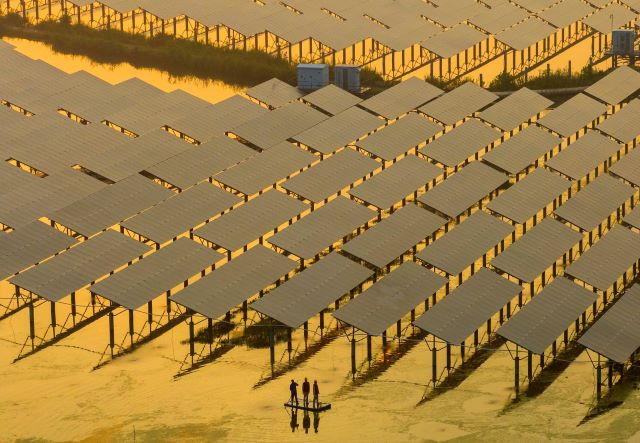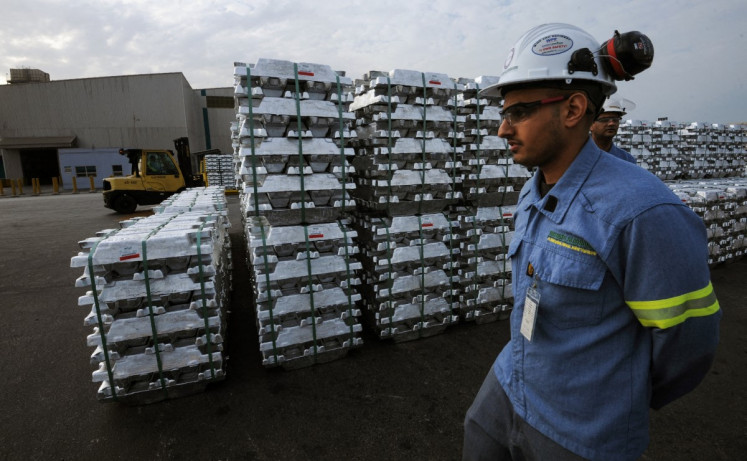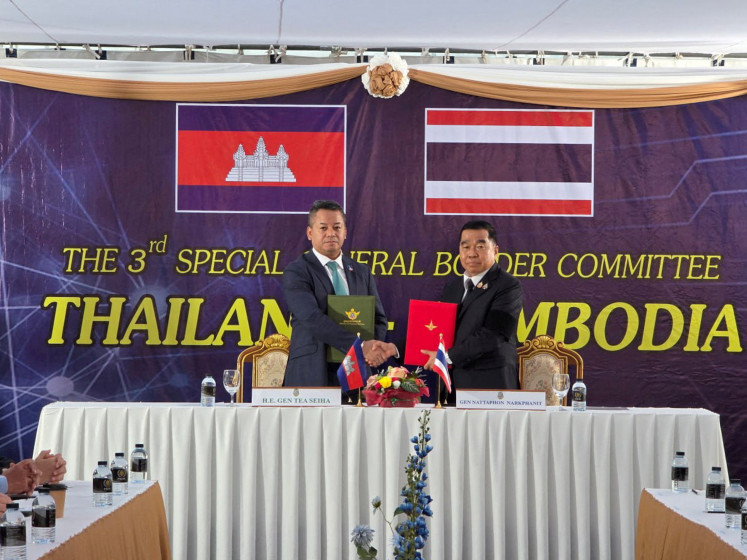Popular Reads
Top Results
Can't find what you're looking for?
View all search resultsPopular Reads
Top Results
Can't find what you're looking for?
View all search resultsWhat the Asia-Pacific needs to leap forward on climate action
To break their 'two steps forward, one step back' routine on climate action, the Asia-Pacific needs to start delivering on ambitious emissions targets.
Change text size
Gift Premium Articles
to Anyone
T
he Asia-Pacific's greenhouse gas emissions keep rising and in some respects the region is going backwards. Climate action was the only Sustainable Development Goal (SDG 13) in which outcomes went backwards in the Asia-Pacific between 2015 and 2023.
Progress towards Sustainable Development Goal 13, taking "urgent action to address climate change", has been a case of two steps forward, one step back in the Asia-Pacific.
Over the past two years, countries in the Asia-Pacific have made strides: China and Indonesia have undertaken to transition their economies to net zero by 2060, Australia and most Southeast Asian countries by 2050.
China has massively invested in renewable energy. Indonesia has slowed deforestation, Vietnam has significantly expanded solar energy and Australia is aiming for more than 80 percent of electricity to be renewable by 2030.
But a 2023 UN report said SDG 13 is "slipping away", and the Asia-Pacific was "both a victim … and a perpetrator of climate change". There's work to do in getting SDG 13 back on track.
Climate finance has increased but falls short of what is needed for both mitigation and adaptation efforts. The financing gap is widening in emerging and developing economies due to discrepancies in financing cost.
For example, the estimated cost of capital for a solar PV panel in key emerging economies was between two and three times higher than in advanced economies and China.
The Asia-Pacific has vast potential to accelerate climate actions with strengthened collaboration. Increasing grid connectivity across Southeast Asian countries through the ASEAN Power Grid initiative can enhance energy security, increase efficiency of power procurement and increase renewable energy uptake.
Increasing knowledge sharing and capability development is also critical to progress in the region. For instance the ASEAN Green Future project, a collaboration between the Sustainable Development Solutions Network, Climateworks Centre and research groups across Southeast Asia, has shown coordinating to build and strengthen low-carbon value chains can catalyze a rapid transformation of Southeast Asia into a global low-carbon hub.
An informed and collective response will form the bedrock of future success. The Asia-Pacific's diverse economic landscapes and policy contexts can shape adaptation strategies, resilience building and emission reduction techniques.
In adaptation, as in mitigation, this knowledge exchange is pivotal, particularly in catalyzing funding and policy support for the most vulnerable nations.
Climate change is leading to more intense and frequent extreme weather events, and there are severe vulnerabilities in the region, including sea level rise in the Pacific, and flooding and typhoons in tropical Asia.
A person living in Asia and the Pacific is six times more likely to be affected by disaster events than someone living outside the region, resulting in thousands of lives lost and millions of dollars of economic damages.
The number of lives lost in disasters is dwarfed by the deaths attributable to air pollution, much of it caused by burning coal.
Of the seven million premature deaths globally resulting from air pollution, more than four million were in Asia and the Pacific. Reducing reliance on coal helps mitigate climate change and also has an immediate health benefit for people living in the region.
While some countries make progress, others grapple with unique challenges.
Indonesia, for instance, stands at a pivotal juncture. The announcement at the G20 in 2020 of USD$20 billion dollars of finance to support a Just Energy Transition Partnership in Indonesia has, along with the global resources race fuelled by the United States' Inflation Reduction Act, created meaningful opportunities for the transition in Indonesia.
However, more policy reforms are needed to increase renewable energy uptake. Indonesia has significant capacity for solar power, but regulatory constraints make it very difficult to compete.
Given the urgent need to address climate change, the imperative is not only setting goals or targets, but delivering on them.
In Australia, targets supported by meaningful policy and economic incentives have been key to progress: electricity generation by renewable sources has grown by 167 percent over 10 years, driven by meaningful policy and incentives to make those targets reality.
John Thwaites is a professorial fellow at Monash University, and Chair of both Monash Sustainable Development Institute and Climateworks Centre. He is also a Co-Chair of the Leadership Council of the UN Sustainable Development Solutions Network (SDSN).
This article is part of a special report on the 'State of the SDGs', produced in partnership with the UN Sustainable Development Solutions Network (SDSN).
Originally published under Creative Commons by 360info™.











